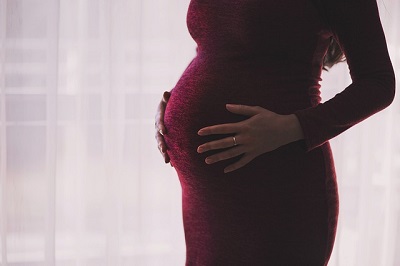Can You Get Pregnant with Endometritis?
Endometritis, an inflammation of the uterine lining, is a common gynecological condition that can potentially affect a woman’s fertility. One of the biggest questions women ask when faced with this condition is: Can I get pregnant with endometritis? The answer is complex and depends on several factors, including the severity of the inflammation, the effectiveness of treatment, and individual physiological conditions.

How Does Endometritis Affect Pregnancy?
Endometritis can disrupt the structure and function of the uterine lining, which is critical for successful implantation and early pregnancy development. Normally, the uterine lining thickens and sheds during the menstrual cycle, creating an optimal environment for a fertilized egg to implant. However, when inflammation damages the endometrium, it can interfere with its physiological functions, reducing the chances of implantation.
Studies suggest that women with endometritis often have thinner uterine linings and impaired blood vessel development, both of which can negatively impact fertility. Furthermore, endometritis may spread to the fallopian tubes, leading to adhesions or blockages. As the fallopian tubes serve as the pathway for eggs to travel from the ovaries to the uterus, any disruption can prevent fertilization or increase the risk of ectopic pregnancy, a potentially dangerous complication for both the mother and the embryo.
Overcoming Endometritis to Achieve Pregnancy: A Success Story
Mary, a 30-year-old woman, struggled with infertility for two years after her marriage. She was eventually diagnosed with chronic endometritis, with findings indicating a thin uterine lining and a suboptimal uterine environment. Despite initial treatments, including antibiotics and hysteroscopic interventions, her progress was limited.
On her doctor's recommendation, Mary began taking the traditional Chinese medicine Fuyan Pill, which is designed to clear heat, detoxify, improve blood circulation, and regulate immune function. Within three months, her uterine lining had regained a healthy thickness, and six months later, Mary conceived naturally. Today, she is a proud mother of a healthy baby.
Mary's story is a testament to the diversity of treatment options and the possibility of overcoming endometritis to achieve pregnancy. Every woman's journey is unique, and selecting the right treatment along with maintaining a positive mindset is crucial for success.
Improving Uterine Health to Boost Pregnancy Chances
For women with endometritis, improving the health of the uterine lining is essential to enhancing fertility. Although endometritis can damage the endometrium’s structure and function, several strategies can help restore its health:
1. Diet and Lifestyle Adjustments
A balanced diet rich in antioxidants, such as fruits, vegetables, and whole grains, can reduce inflammation and support endometrial health. Limiting high-sugar and high-fat foods, avoiding smoking, and minimizing alcohol intake also contribute to a healthier uterine lining.
2. Regular Exercise
Physical activities like brisk walking, swimming, and yoga can improve blood circulation and strengthen the immune system, helping to reduce inflammation. Exercise also regulates hormone levels, which are vital for the endometrium’s normal functioning.
3. Traditional Chinese Medicine
Traditional Chinese Medicine like Fuyan Pill can play a significant role in addressing endometritis. This herbal medicine not only targets the root cause of the inflammation but also supports the repair of damaged uterine tissues, promoting a healthier environment for pregnancy.
4. Routine Medical Follow-Ups
Regular check-ups with a gynecologist ensure that inflammation is under control and that the uterine lining is in optimal condition. Treatments such as antibiotics, hormonal therapy, or assisted reproductive techniques may also be tailored to individual needs.
Coping with Psychological Challenges after an Endometritis Diagnosis
Being diagnosed with endometritis can be emotionally taxing, as it often raises concerns about fertility and overall health. Learning to manage these psychological challenges is essential for a woman’s well-being and can also positively influence treatment outcomes.
1. Acknowledging Emotional Responses
Feeling anxious, frustrated, or even hopeless after receiving an endometritis diagnosis is normal. It’s important to allow yourself to process these emotions and to share them with trusted family members, friends, or a professional counselor.
2. Maintaining a Positive Outlook
Despite the challenges posed by endometritis, many women successfully conceive after proper treatment. Keeping a positive attitude and believing in medical advancements and your body’s resilience can make a significant difference.
3. Seeking Professional Psychological Support
Psychologists or counselors can help women navigate the emotional complexities of an endometritis diagnosis. They can provide effective coping strategies and foster a more optimistic perspective toward treatment and recovery.
4. Adopting Healthy Habits and Staying Socially Active
Regular exercise, nutritious meals, and adequate sleep contribute to both physical and mental well-being. Staying connected with loved ones and participating in social activities can alleviate stress and improve overall resilience.
Conclusion
Although endometritis can negatively affect fertility, it does not necessarily mean that pregnancy is out of reach. With proper treatment and lifestyle adjustments, many women can restore their uterine health and successfully conceive. By staying proactive and seeking the right support, endometritis patients can embrace hope and work toward achieving their dream of parenthood.
You may also be interested in:
Female Health: Show You How Ureaplasma Urealyticum Can Cause Endometritis
Can Low Estrogen Cause Endometritis?
Can Salpingitis Cause Endometritis? There Are Similarities Between the Two
- Can You Still Get Pregnant with Adenomyosis? 4 Truths Every Woman Should Know
- Can You Get Pregnant with Endometritis?
- How Can The Uterus Enlarge While Not Pregnant?
- Female Health: Show You How Ureaplasma Urealyticum Can Cause Endometritis
- Can You Get Pregnant If Your Fallopian Tubes are Open but not Smooth?
Testimonials
- Adenomyosis with Ureaplasma Urealyticum Cured by Fuyan Pill
- Tubal blockage with hydrosalpinx can be cured by TCM shortly
- Fuyan Pill Helps A woman with Adenomyosis Get Pregnant
- A Woman with Hydrosalpinx Is Cured with Fuyan pill
- Pelvic Inflammatory Disease Testimonials
- Irregular Vaginal Bleeding and Endometrial Thickening Cured by Fuyan Pill
- Pruritus Vulvae and Frequent Urination: Mycoplasma Infection Cured after 2 Courses



